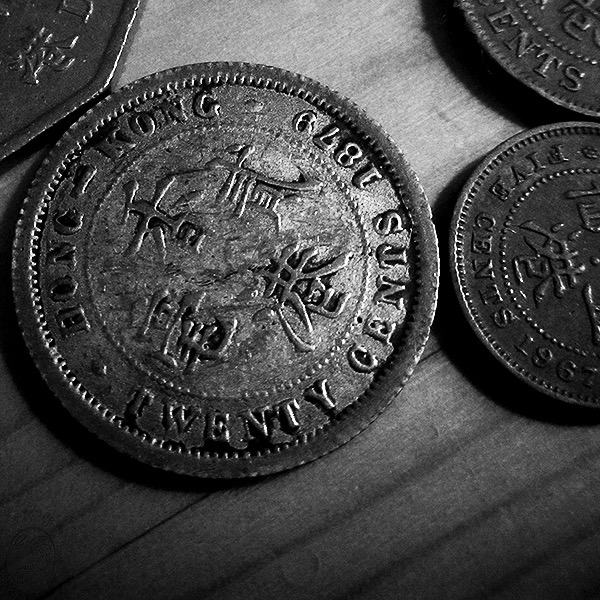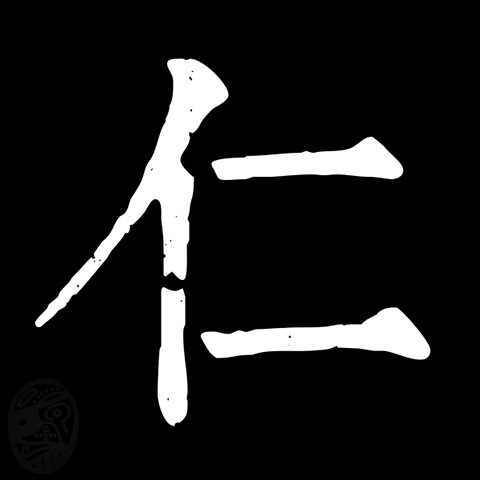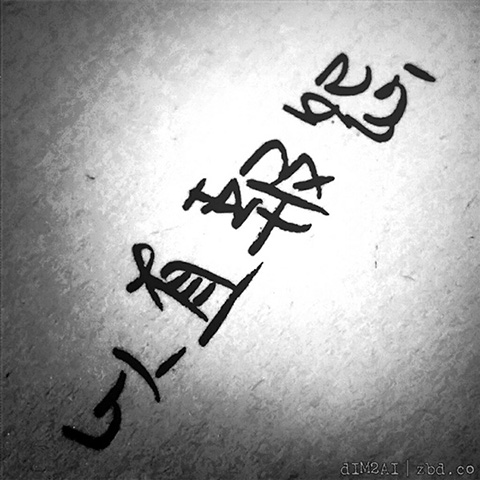
法、心、想|eVERYTHING, hEART, tHOUGHTS
靈魂如何,世界也必如何。
The wORLD will depend on how the sOUL is.
佛說:「[一切₁]法從[心₂][想₃]生。」
Buddha said, “[eVERYTHING₁] is created by [hEART₂] and [tHOUGHTS₃].”
..,

法、心、想|eVERYTHING, hEART, tHOUGHTS
靈魂如何,世界也必如何。
The wORLD will depend on how the sOUL is.
佛說:「[一切₁]法從[心₂][想₃]生。」
Buddha said, “[eVERYTHING₁] is created by [hEART₂] and [tHOUGHTS₃].”
..,

君子、義、小人、利|rEAL mAN, mORALITIES, mEAN mAN, bENEFITS
在下明白,出賣靈魂的背後有著萬個理由和藉口,可是這萬個動機卻為不公不義造就了一個無理的世界。
I understand that there are ten thousand reasons and excuses behind selling souls, however, these ten thousand motives have created an unreasonable world for the injustice.
再細想,其實最後還是由我們及下一代「自食其果」。
And then think again carefully, we and the next generations actually still have to “take the consequences” in the end.
這值得嗎?
Is it worth it?
《論語》的第四書《里仁》——第十六章:
“The Analects”*₁, Book 4 – Chapter 16:
子曰:「[君子₁]喻於[義₂],[小人₃]喻於[利₄]。」
Confucius*₂ said, “[rEAL mAN₁] understands [mORALITIES₂], [mEAN mAN₃] understands [bENEFITS₄].”

默、學、誨|rEMEMBER, lEARN, tEACH
就一人生道理話題,朋友曾經問道:「以前念書時學過的東西還有用嗎?」
On a truth for life topic, a friend of mine has asked, “Can we still use the things we learnt in school?”
當空白的生命降臨到世界時,就要開始學習。學習過而又不被忘記的教䀲,才是真正的知識。知識可從悉心的教導下和好學不倦中慢慢茁壯成長,再經過歲月的實踐才能創造出理想的世界。
When new empty soul arrives to the world, it must start to learn. The real knowledge is the things we have learnt and not be forgotten. Knowledge can grows slowly through careful teachings and hunger of learning, and then create the dream world after years of practice.
《論語》的第七書《述而》——第二章:
子曰:「[默₁]而識之,[學₂]而不厭,[誨₃]人不倦。何有於我哉?」
“The Analects”, Book 7 – Chapter 2:
*Confucius said, “[rEMEMBER₁] the knowledge you have learnt; do not feel bored to [lEARN₂]; do not feel tired to [tEACH₃]. As for me, what have I done?”
更名|rENAME
特此通知:
Notice is hereby given that:
在下還是喜歡最初名字的構思,故正式更名為「竹 zUK・本 bUN・點 dIM」。
I still prefer the original idea of the name and thus officially renamed as “竹 zUK・本 bUN・點 dIM”.
..,

固、直、空、貞|tOUGH, sTRAIGHT, hOLLOW, fAITHFUL
自古,竹子已常常被人們比喻成君子。
Bamboo has always been likened to real man by people since ancient times.
白居易(七七二年至八四六年 ,唐代著名詩人、
文學家及政府官員)-《養竹記》首段:
Bai Juyi (772-846, famous Tang Dynasty poet,
litterateur and government official) – first paragraph of “Story of planting bamboo”:
×××
竹似賢,何哉?
Bamboo is like sage, why?

逝、陷、欺、罔|gO, tRAP, lIE, fOOL
「君子之仁」與「婦人之仁」。
“Real benevolent” VS “Overly benevolent”.
《論語》的第六書《雍也》——第二十六章:
“The Analects”, Book 6, Chapter 26:
宰我問曰:「仁者,雖告之曰:『井有仁焉。』其從之也?」
子**曰:「何為其然也?君子可[逝₁]也,不可[陷₂]也;可[欺₃]也,不可[罔₄]也。」
Zai Wo* asked: “There is a benevolent person, if someone told him, ‘Something humane happened in the well.’ Will that benevolent person follow to go? ”
Confucius answered: “How can it be? Real man can [go to cHECK₁], but cannot [fall into the tRAP₂]; can [listen to lIES₃], but cannot [blindly be fOOLED₄].”

直、德|jUSTICE, gOOD
xxx
《論語》的第十四書《憲問》——第三十六章:
“The Analects”, Book 14, Chapter 36:
或曰:「以德報怨,何如?」子曰:「何以報德?以[直₁]報怨,以[德₃]報[德₂]。」
Someone asked: “What about returning good for evil?”
*Confucius answered: “What to return for good then? We should return evil with justice and good for good.”
xxx
阿豺折箭|Mùróng Āchái: bREAKING aRROWS
上回說到⋯⋯《阿豺折箭》 。
Recap… the Story of “Mùróng Āchái: breaking arrows”.
阿豺有子二十人,緯代,長子也。阿豺又謂曰:「汝等各奉吾一支箭,折之地下。」俄而命母弟慕利延曰:「汝取一支箭折之。」慕利延折之。又曰:「汝取十九支箭折之。」延不能折。阿豺曰:「汝曹知否?單者易折,眾則難摧,戮力一心,然後社稷可固。」
阿豺就是南北朝時吐谷渾國王——「慕容阿柴」,而對於其他相關的注釋,大家可搜尋坊間各處。其道理則十分淺白,「單者易折,眾則難摧」。
The story of “Mùróng Āchái*1 and his 20 sons” version is the most recent used Chinese versions.
一支竹仔|lITTLE bAMBOO sTICK
香港人有一首歌——《一支竹仔》,是說「團結就是力量」(家和萬事興 的主題曲,1956):
Hongkongers have a song called “Little bamboo stick” (theme song of the movie “A Peaceful Family will Prosper”, 1956) which is telling about “Unity is strength”, unprofessional translated lyric as below-below:
Continue reading